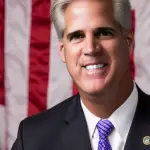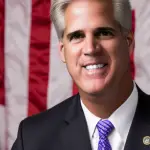The Supreme Court denied the request of ex-Trump advisor John Eastman to overturn a lower court ruling against him. Eastman was accused of breaking the law by attempting to convince Congress not to certify Joe Biden’s election. Although the Court’s decision was significant, the notable part was that Justice Clarence Thomas recused himself from the case. This is the first time he has done so in matters related to the 2020 presidential election. It’s worth mentioning that Eastman once worked as a law clerk for Thomas.
The case revolves around Eastman’s attempts to stop Chapman University from providing emails from his work account to the House January 6 committee. Eastman, a former law professor at the university, wanted to prevent the committee from accessing those materials. However, the committee had already obtained the emails, making Eastman’s case essentially pointless. The Supreme Court’s action was more of a formality.
It’s interesting that Justice Thomas refrained from commenting on why he recused himself from the case. It could be because of Eastman’s previous role as one of his law clerks. Nevertheless, this decision highlights the Court’s involvement in controversies related to the 2020 election.
In another Supreme Court-related news, former President Donald Trump secured a legal victory when the Court declined to hear an appeal from write-in Republican presidential candidate John Castro. Castro argued that Trump is ineligible to seek reelection based on Section 3 of the 14th Amendment, which prevents individuals engaged in insurrection or rebellion from holding office. However, his claim was dismissed, allowing Trump to potentially run again in the future.
Lastly, three January 6 defendants are appealing to the Supreme Court to have their charge of “obstruction of an official proceeding” dismissed. They argue that the application of the law, initially designed to combat financial fraud, has been politicized to suppress dissent. A favorable ruling in their case could have broad implications for other defendants facing similar charges, including high-profile figures like former Olympic swimmer Klete Kelle and former President Trump.
Overall, these recent developments in the Supreme Court demonstrate its involvement in issues related to the 2020 election and the potential consequences for individuals involved. It’s crucial to closely monitor the Court’s decisions as they shape the legal landscape and impact future political events.




